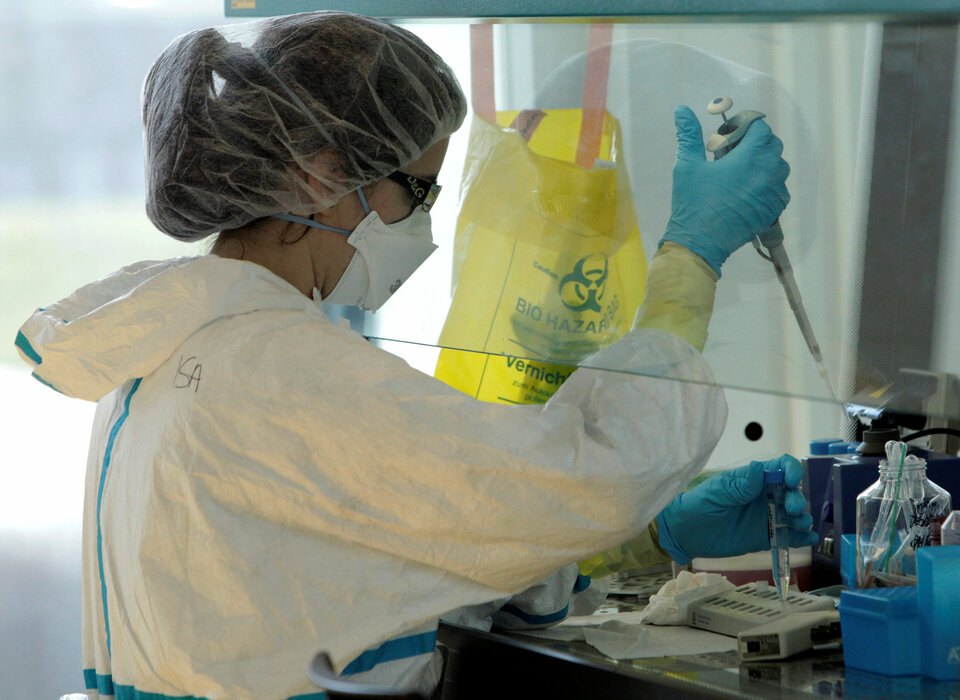Two Thirds of Cancers Caused by Random Genetic Mistakes: US Study

Chicago. About two thirds of cancers are caused by random typos in DNA that occur as normal cells make copies of themselves, a finding that helps explain why healthy individuals who do everything they can to avoid cancer are still stricken with the disease, US researchers said on Thursday (23/03).
"These cancers will occur no matter how perfect the environment," said Dr. Bert Vogelstein, a cancer geneticist at Johns Hopkins University in Baltimore whose study was published in the journal Science.
The new findings are based on genetic sequencing and cancer studies from 69 countries around the world. They follow a controversial 2015 study published in Science by the same researchers at Johns Hopkins that looked just at cancers in the United States.
That study, by Vogelstein and mathematician Cristian Tomasetti, asserted that random DNA mistakes accounted for a lot more of the risk of developing cancer than previously thought. The finding caused an outcry from cancer experts, who have traditionally held that most cancers were caused by preventable lifestyle and environmental factors or inherited genetic defects.
Although most people know about the hereditary and environmental causes of cancer, such as smoking, few appreciate the risk from random mistakes that occur each time a normal cell divides and copies its DNA into two new cells, Tomasetti said.
Such mistakes are "a potent source of cancer mutations that historically have been scientifically undervalued," Tomasetti said in a statement.
The new work offers the first estimate of what proportion of cancers are caused by these random mistakes. To get there, the team developed a mathematical model using DNA sequencing data from The Cancer Genome Atlas and disease data from the Cancer Research UK database, looking specifically at mutations that drive aberrant cell growth in 32 different cancer types.
Although there was variation within specific cancers, overall, the researchers estimated that 66 percent of mutations in these cancers resulted from copying errors, 29 percent were caused by lifestyle and environmental factors, and the remaining 5 percent were inherited.
Although most of these mutations cannot be prevented, the team stressed that early detection and treatment can prevent many cancer deaths, regardless of the cause.
Though most cancers are due to bad luck, people should not ignore sound public health advice that can help people avoid preventable cancers, including maintaining a healthy weight and avoiding environmental risk factors such as smoking, the team said.
Reuters
Tags: Keywords:POPULAR READS
Apple Wants to Increase Investments in Vietnam
Vietnam has become more important to Apple as the company seeks to diversify its supply chains away from China.China’s Top Diplomat Wang Yi to Visit Indonesia for Cooperation Talks
Chinese top diplomat Wang Yi will chair a policy coordination meeting aimed at strengthening Indonesia-China cooperation.President Jokowi Urges Global Restraint as Tensions Rise in the Middle East
President Joko "Jokowi" Widodo emphasized the importance of diplomatic efforts to prevent the escalation of conflict in the Middle EastKPK Identifies Sidoarjo Regent as Suspect in Corruption Probe
KPK has identified Ahmad Muhdlor Ali as a suspect in a corruption case involving the Sidoarjo Regional Tax Service AgencyEconomic Concerns Overshadow Security Worries for Indonesians in Iran
Indonesian citizens currently in Iran are more concerned about rising inflation than the security situation in the country.Popular Tag
Most Popular






















